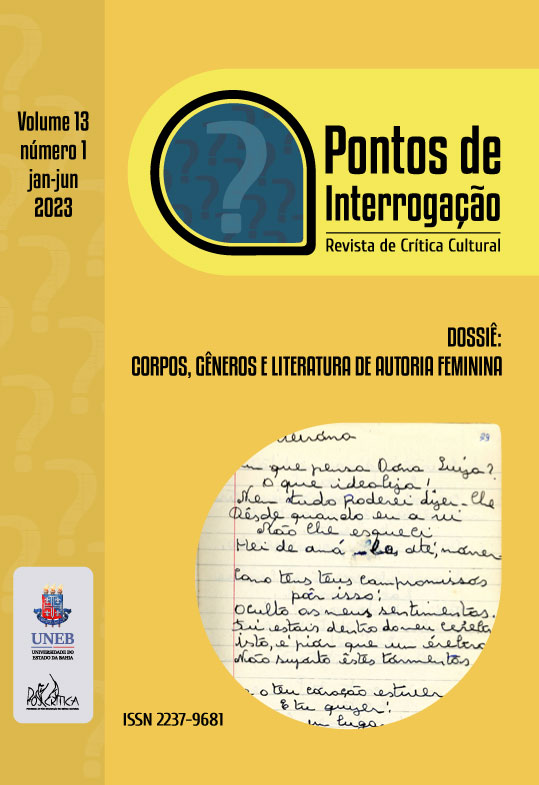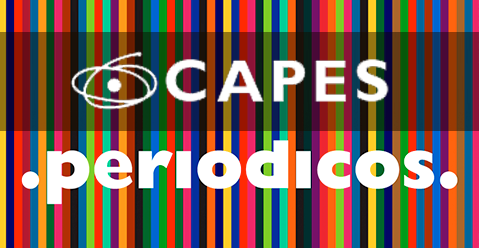From Jane Eyre (1847) to Wide Sargasso Sea (1966)
Bertha Mason’s identity (re)construction in post-colonial anglophone prose
DOI:
https://doi.org/10.30620/pdi.v13n1.p319Keywords:
Postcolonial Criticism, Identity, Latin American Literature, English LiteratureAbstract
The advent of colonial criticism, after the second half of the twentieth century, brought to light other ways of reading the world, showing how discursive mechanisms of identity construction commonly reinforce power relations established from colonialism and that are sustained until the present. Based on this, we seek, in this article, to investigate the way in which the identity construction of the character Bertha Mason took place, in the novel Jane Eyre (1847), by Charlotte Brontë, and how, in response to the author’s imperialist feminism, Jean Rhys rewrote the story of the same character in Wide Sargasso Sea (1966) from another perspective, giving voice to a Caribbean woman silenced in the previous plot. In order to do so, we take as input the considerations of Spivak (1985), Gilbert and Gubar (2000), Woodward (2014), Bacellar (2020), among others. Our study considers that literature, from a postcolonial perspective, questions the oppressive discourse that permeates the representation of Latin American and Caribbean cultures, allowing the emergence of other ways of seeing the world, refuting stereotypes and breaking silencing.
[Received on: March 14, 2023 - Accepted on: June 10, 2023]
Downloads
References
BACELLAR, Camila Bastos. À beira do corpo erótico descolonial, entre palimpsestos e encruzilhadas. In: HOLLANDA, Heloisa Buarque de (Org.). Pensamento feminista hoje: sexualidades no sul global. 1. ed. Rio de Janeiro: Bazar do Tempo, 2020.
BRONTË, Charlotte. Jane Eyre. Collector’s Library: 2003.
BUTLER, Judith. Problemas de gênero: feminismo e subversão da identidade. Trad. Renato Aguiar. 11. ed. Rio de Janeiro: Civilização Brasileira, 2016.
COLLINS, Patricia Hill. Aprendendo com a outsider within: a significação sociológica do pensamento feminista negro. Soc. estado. [online]. 2016, vol.31, n.1, pp. 99-127. ISSN 0102-6992. https://doi.org/10.1590/S0102-69922016000100006.
GILBERT, Sandra M.; GUBAR, Susan. The Madwoman in the Attic: The Woman Writer and the Nineteenth-Century Literary Imagination. 2. ed. Universidade de Yale, 2000.
Hooks, bell. Erguer a voz: pensar como feminista, pensar como negra. Trad. Cátia Bocaiuva Maringolo. São Paulo: Elefante, 2019.
NAYAR, Pramod K. Contemporary Literary and Cultural Theory: From structuralism to Ecocriticism. Pearson, 2010.
RHYS, Jean. Vasto mar de sargaços. Trad. Léa Viveiros de Castro. Rio de Janeiro: Rocco, 2012.
SAID, Edward W. Orientalism. 1. ed. New York: Vintage Books, 1978.
SILVA, Tomaz Tadeu da. Identidade e diferença: a perspectiva dos estudos culturais. In: SILVA, Tomaz Tadeu da (Org.). Stuart Hall, Katheryn Woodward. 15. ed. Petrópolis, RJ: Vozes, 2014.
SPIVAK, Gayatri Chakravorty. Can the Subaltern Speak? In: NELSON, C. e GROSSBERG, L. (eds.). Marxism and the Interpretation of Culture. Urbana: University of Illinois Press, 1988.
SPIVAK, Gayatri Chakravorty. Three Women’s Texts and a Critique of Imperialism. Critical Inquiry, V. 12, N. 1, “Race,” Writing, and Difference (1985), pp. 243-261. Disponível em: http://seas3.elte.hu/coursematerial/GardosBalint/gayatri_spivak_three_womens_texts_and_a_critique_of_imperialism.pdf. Acesso em: 08 fev. 2023.
WOOLF, Virginia. Mulheres e ficção. Trad. Leonardo Fróes. 1. ed. São Paulo: Penguin Classics Companhia das Letras, 2019.
Published
How to Cite
Issue
Section
License
Copyright (c) 2023 Pontos de Interrogação – Journal of Cultural Criticism

This work is licensed under a Creative Commons Attribution-ShareAlike 4.0 International License.
Autores que publicam nesta revista concordam com o seguinte termo de compromisso:
Assumindo a criação original do texto proposto, declaro conceder à Pontos de Interrogação o direito de primeira publicação, licenciando-o sob a Creative Commons Attribution License, e permitindo sua reprodução em indexadores de conteúdo, bibliotecas virtuais e similares. Em contrapartida, disponho de autorização da revista para assumir contratos adicionais para distribuição não-exclusiva da versão do trabalho publicada, bem como permissão para publicar e distribuí-lo em repositórios ou páginas pessoais após o processo editorial, aumentando, com isso, seu impacto e citação.























